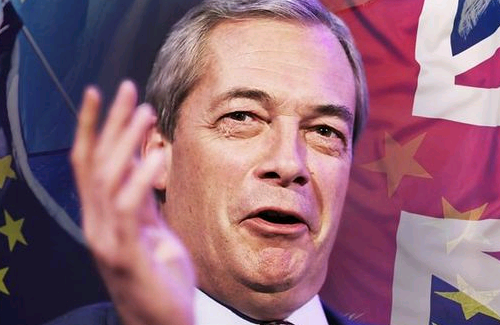Earlier this week the world commemorated Holocaust Memorial Day. Twitter was awash with tweets marking this day. Some of these tweets were thoughtful and moving while others were thoughtless and offensive.
The idea that anti-Zionism is not an expression of antisemitism is quite frankly ludicrous, and it indicates a complete lack of understanding of history and of antisemitism. It is entirely different from fair criticism of Israeli government policy, but rather it ultimately seeks the destruction of the Jewish state.
Zionism
When political Zionism was born, in 1897, it was the belief in establishing a Jewish state in the historic Jewish homeland known as Israel. Zionism never specified how much of that land was to become the Jewish state, just that a Jewish state should be re-established in the Middle East.
When Zionism was born in the 19th century it was as a response to a period of intense antisemitism. Theodore Herzl, who founded Zionism as a political movement, was in part inspired by the trial of Alfred Dreyfus, a French Jew. Dreyfus was accused of selling secrets to the German Empire and the affair led to Jewish people being seen as being traitors to the French nation, which created anti-Jewish sentiment and and during his trial antisemitism became rife across France. This rise of antisemitism led French writer Émile Zola to pen his now-famous “J’accuse” article, in 1898.
This continuation of aggressive antisemitism, which occurred after 1000 years of Christianity-driven Jew-hatred in Europe, led Herzl to believe the only way for the Jews to be safe was to have their own homeland. Herzl laid out his ideas in the famous pamphlet Der Judenstaat (The Jewish State), in 1896. In it, Herzl reiterated the need for a Jewish state by saying only then ‘We shall live at last as free men on our own soil, and in our own homes peacefully die. ‘
Anti-Zionism
The nature of anti-Zionism, as a political movement, changed after the establishment of the State of Israel in 1948. Opposing the idea of a Jewish state, when none exists, is naturally quite different from opposing the existence of a country with its living, breathing citizens. Anti-Zionism is now regarded by many Jewish people as a modern expression of antisemitism, because it involves the expression of traditional forms of antisemitism, albeit in a modern context.
One reason for this view is that historically, antisemitism has been like bacteria that continuously evolve since new forms of antisemitism arise in response to cultural shifts. In short, antisemitism always fits the zeitgeist. This is the case with anti-Zionism.
Anti-Zionism today, especially prevalent in the left, is fuelled by traditional antisemitic ideas. These ideas were first propagated by the Soviet Union who launched an aggressively antisemitic campaign to delegitimise Israel. The Soviet Union stated that Israel was the centre of all the world’s evil (an idea about Jews previously stated by the Church and, latterly, the Nazis), and they stated that Israel was attempting to control the world (an antisemitic trope previously stated in the racist text Protocols of the Elders of Zion). Like other forms of antisemitism, this specific form also evolves to fit the zeitgeist. For example, in 1997, Israel was accused of purposefully giving Palestinian children HIV.
The Soviet Union also horrifically linked Zionism to Nazism, an idea still present today. In 2016 Ecuadorian Diplomat Horacio Sevilla Borja said he did not think there was “anything more similar” to Nazi persecution than Israeli policy towards the Palestinians. Zionism has also been declared a form of racism. As a response in 1975 the United Nations adopted General Assembly Resolution 3379 which officially recognised Zionism, the Jewish right to self-determination, as racist. Subsequently, Israel has been accused of conspiring to alter the political dynamic of other nations. In the UK, that antisemitic trope manifests itself as Israel being accused of attempting to smear Jeremy Corbyn and the Labour Party.
Israel, unlike other states involved in conflict, is unfairly targeted with an obsessive hatred seen around the world. The BDS (Boycott, Divestment and Sanctions) movement, born in Britain, seeks to isolate Israel academically, culturally and economically. Such a movement seeks to demonise Israel. By Israel being the only state a boycott movement exists to target, the idea that Israel is the centre of all the world’s evils is being spread. David Hirsh in an excellent article on why BDS is antisemitic, stated, ‘
“BDS is a global campaign against Israel and only Israel. It seeks to foment sufficient emotional anger with Israel, and with only Israel, so that people around the world will want to punish Israel, and only Israel.”
After Russia annexed the Crimea in 2014 there was no BDS movement. No one is boycotting Turkey over its occupation of North Cyprus? Why not?
The way modern anti-Zionism is expressed engages with antisemitic tropes, but at the movement’s heart is a form of racial hatred. By describing yourself as an anti-Zionist, you are positioning yourself against a persecuted minority’s right to self-determination. Ironically, this position is often held by the very same people who advocate for the Palestinian right to self-determination. Why treat the Jews differently to the Palestinians? To the Scots? To the Catalans? The reality is that anti-Zionism singles Jewish people out as some kind of exception, and attempts to deprive them of rights all other groups around the world posses. It also seeks to deprive Jews of their cultural and ethnic history, as it denies that they are a people indigenous to the land of Israel. Jews originated in the Middle East. Independent Jewish States existed for over a thousand years, and the majority of Jews only left those areas because of genocide and ethnic cleansing. Anti-Zionists describe Israel as a white/European colonialist venture and frame it in the wider context of imperialism, but the question is: How can an ethnic group colonise its own historic land that it was exiled from through ethnic cleansing and genocide? It has been proven that Jews genetically originated in the Middle East, and are actually more closely related to the Palestinians than they are to non-Jewish Europeans.
It’s important to note that these facts don’t discredit the Palestinian right to self-determination. To ensure peace in the region, it seems just to create a strong and secure Palestinian state that can exist alongside a peaceful and secure Israeli State. That is not what anti-Zionists advocate. When Marc Lamont Hill calls ‘from the River to the Sea Palestine will be free’, he is calling for Israel’s destruction. That ideology is based on a one state solution, and that state isn’t Israel. Where would the seven million Jews go when Israel is destroyed?
Natan Sharansky created a ‘3D Test’ to check whether criticism of Israel was antisemitic, based on three tenets – demonisation, double standards and delegitimisation. This is a very useful practical tool for understanding anti-Zionism.
Despite what several uninformed people may argue, Anti-Zionism is a modern day expression of antisemitism because it seeks the destruction of the only Jewish state in the world. It is entirely different to fair criticism of Israeli policy and it uses language rooted in antisemitism and it treats Israel (and therefore Jews) using double standards, in other words differently to other nations. Anti-Zionists not only choose to ignore similar (or even worse) events in other parts of the world, they seek to deprive Jews of something to which every single other group in the world is entitled: self determination. That is why anti-Zionism is antisemitism. Pure and simple.
By Ben Maxwell Freeman





